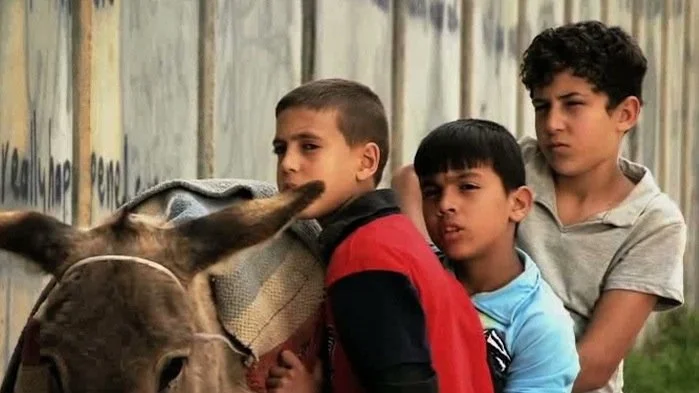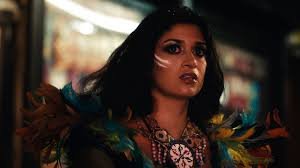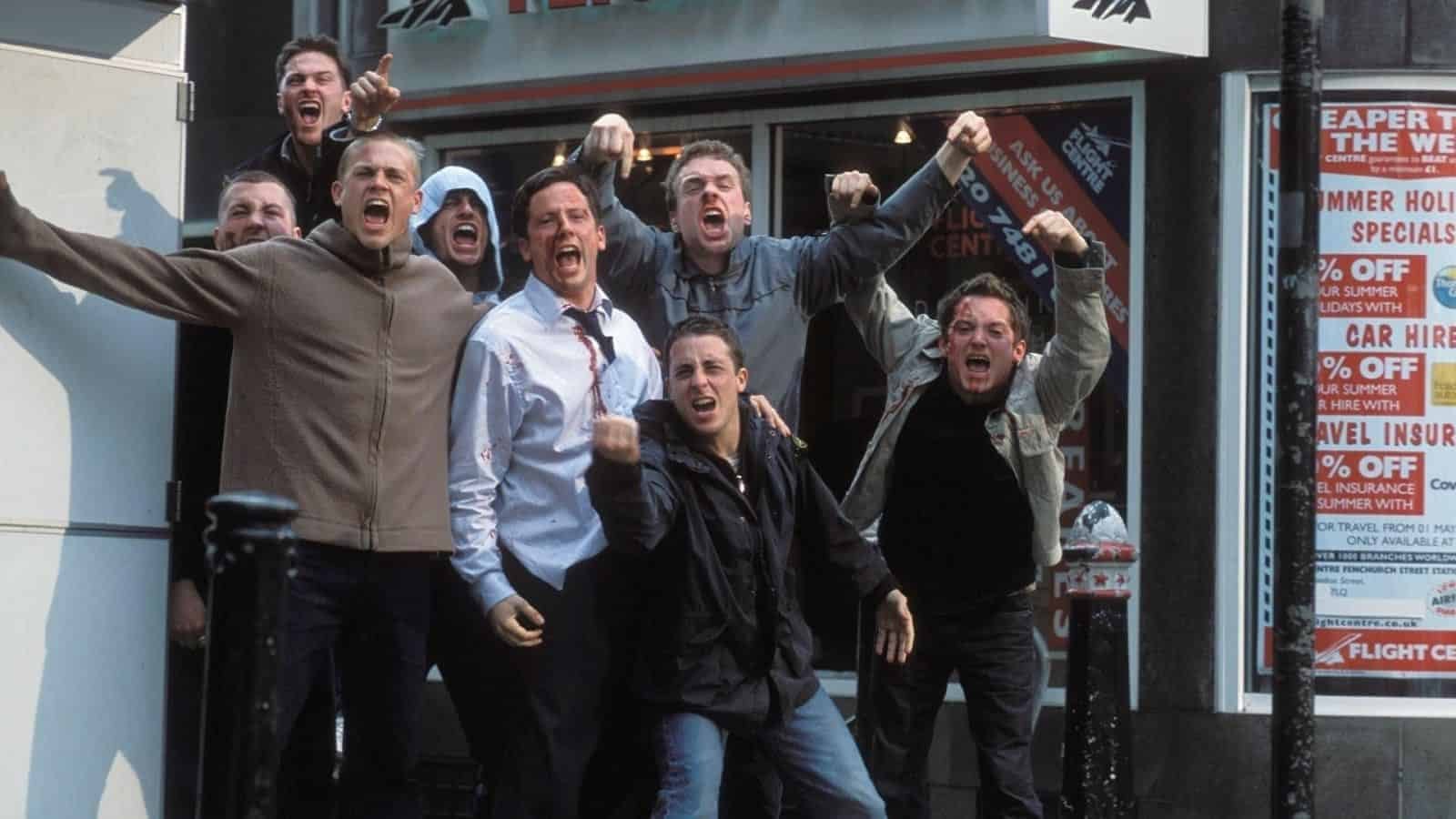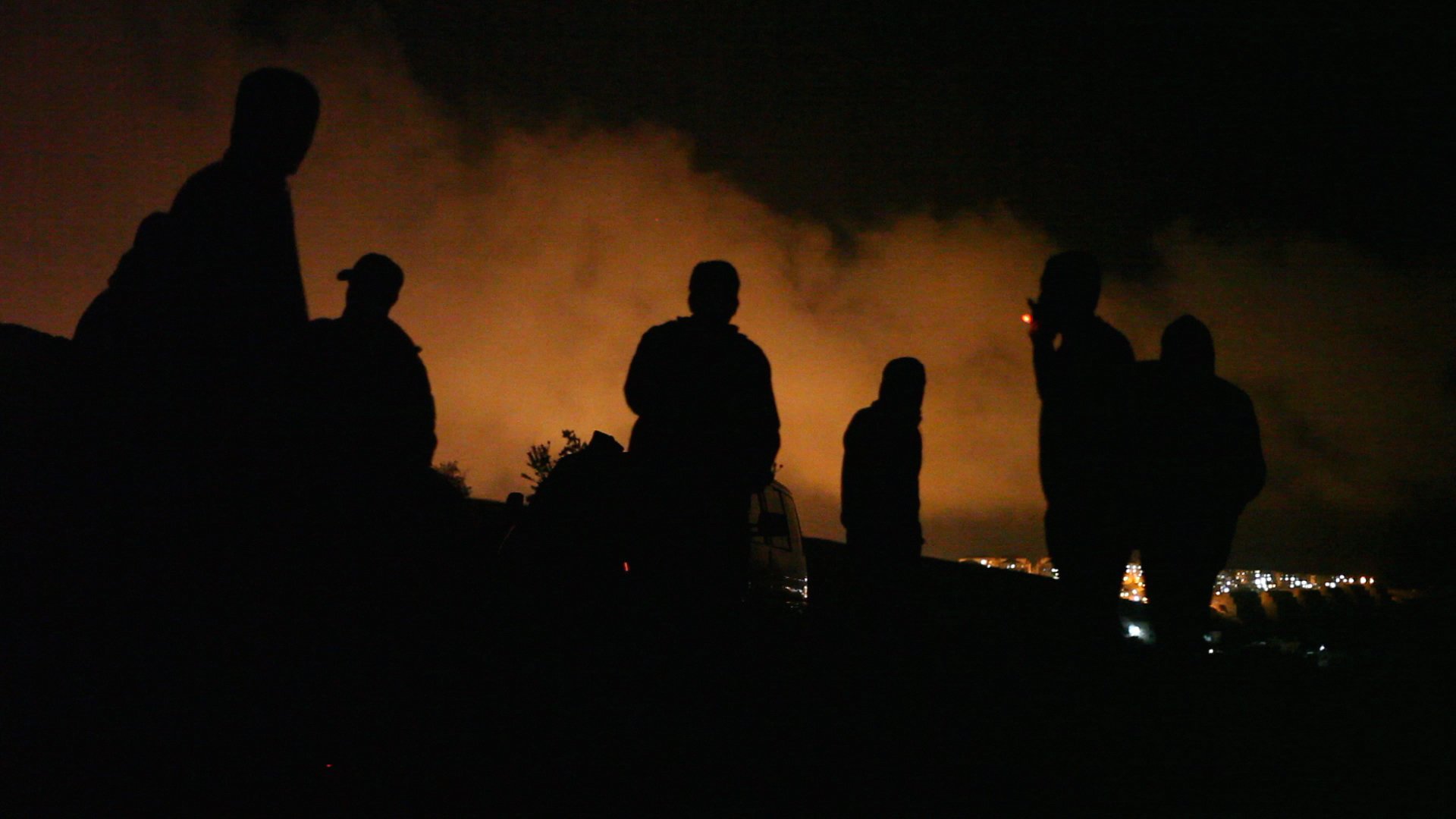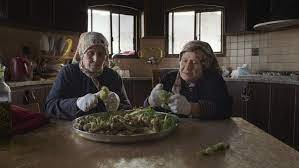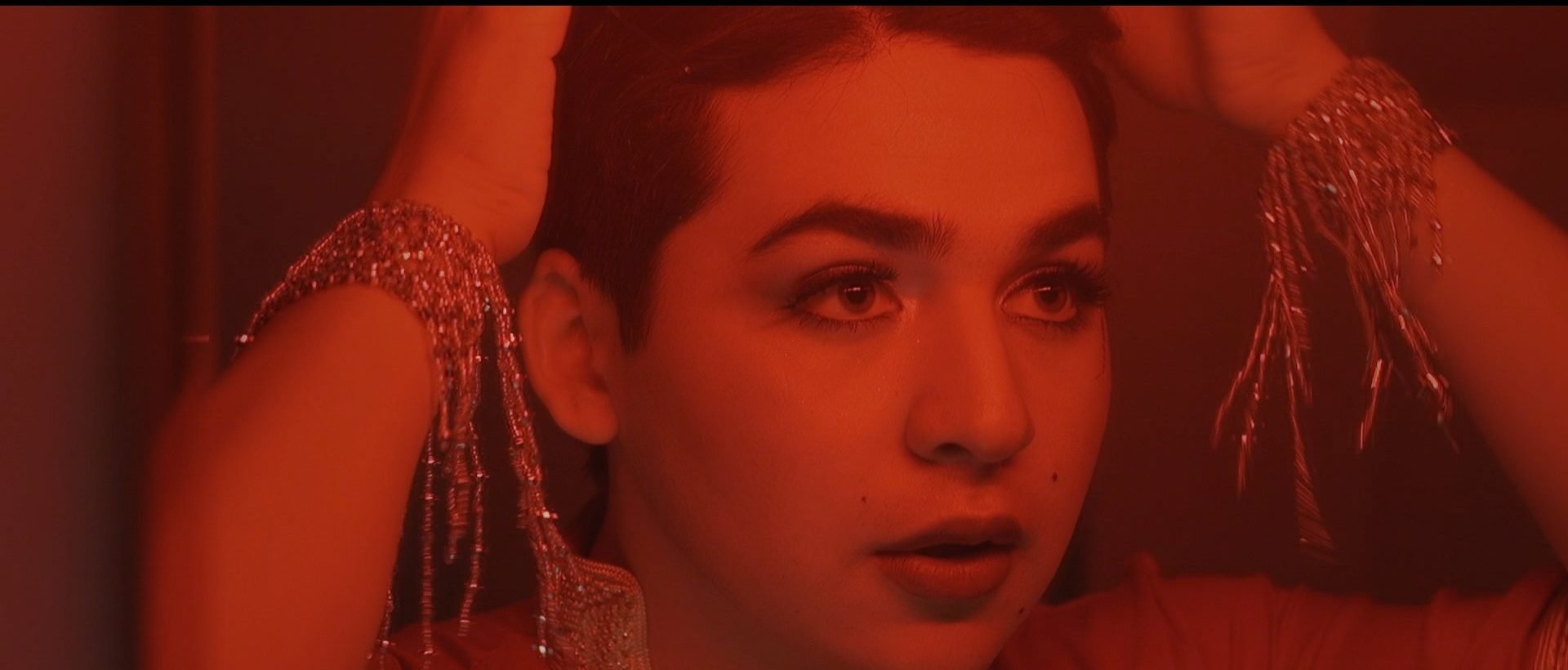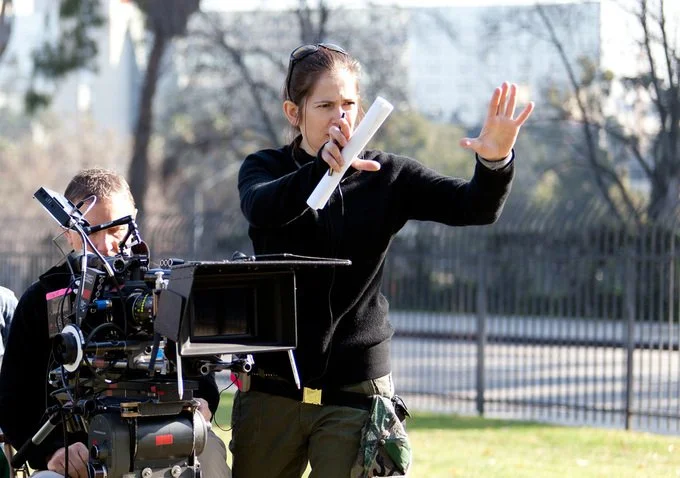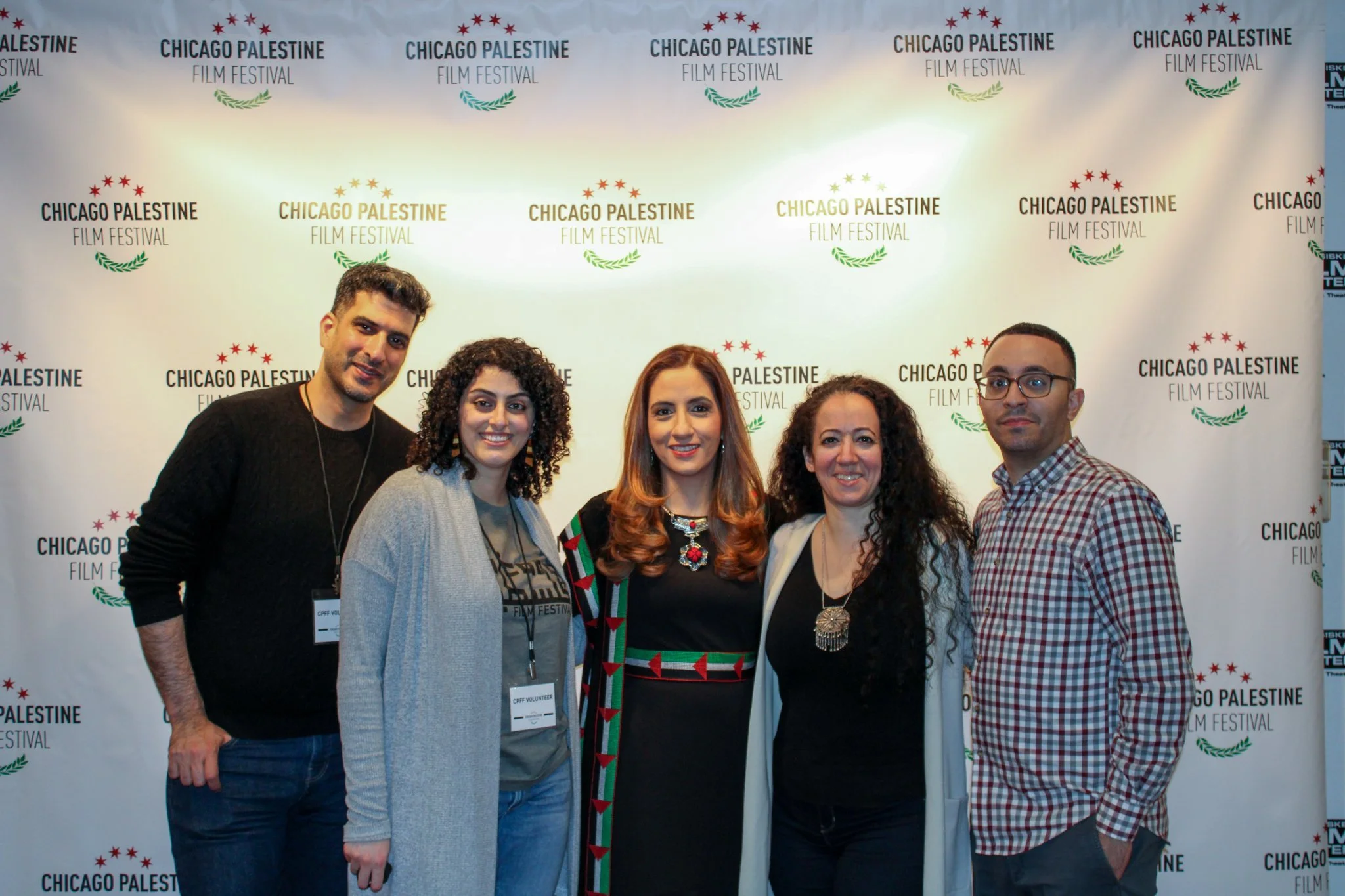Palestinian Film Recommendations
The following was originally published in the Palestine in America Film Edition. Please support our work by ordering a print copy, downloading a digital edition or becoming a subscriber.
A Boy, A Wall and A Donkey by Hany Abu-Assad
https://www.youtube.com/watch?v=TrAzY1pZ_XY
A sweet and scary look at children’s lives under the occupation, viewers are challenged to see the boys as what they are: boys playing with toys under a military occupation, rather than the common trope of Palestinian boys who grow up to be violent. Three boys attempt to recreate a classic gangster flick with the tools they have at hand: toy guns and whatever cameras they have at their disposal. When their first scene is put to a halt, they have an idea, but will they ever retrieve their tape? This film is a short gift given to us by Hany Abu-Assad, and can be found on YouTube by the savvy searcher.
In The Future, They Ate from the Finest Porcelain by Larissa Sansour
I had the incredible honor of viewing this piece at the Palestine Museum in Woodbridge, Connecticut in 2019. This film by Larissa Sansour–who is easily one of the most brilliant thinkers and artists engaged with Palestinian issues–is an exploration of science and archaeology, as well as the myths that follow them through history. In this film, a “narrative resistance group” leaves elaborate porcelain underground, a fictional civilization, to support their assertion over their lands in the future. This film leaves you with questions about history-making and archaeology and their role in shaping the future.
Tallahassee by Darine Hotait & Hala Alyan (Nader)
https://www.newyorker.com/culture/screening-room/grappling-with-mental-illness-in-secret-in-tallahassee
Mental health in the Arab community can sometimes be brushed off to the side. Thankfully, Darine Hotait and Hala Alyan set their sights on an important issue and brought it to the forefront of storytelling with the short film Tallahassee. The story about an Arab-American woman dealing with mental health takes place over the course of just one day, but still takes viewers on a roller coaster of emotions. I’m convinced it will resonate with many just as it resonated with me.
Green Street Hooligans by Lexi Alexander (Nader)
If there’s one thing Lexi Alexander knows, it’s fighting and filmmaking. Her wheelhouse is combining the two skills. She did exactly that in Green Street Hooligans (2005). Luckily for us, Alexander was pushed to cast Elijah Wood alongside her choice of Charlie Hunnam, who was not very well-known at the time. The two make for a fun duo whose friendship you’ll root for. It’s the perfect movie for someone who wants to understand European soccer culture while watching a Palestinian-made film.
Infiltrators by Khaled Jarrar (Ryah)
In his 2012 film Infiltrators, Khaled Jarrar follows Palestinians of all walks of life as they find their way around Zionist barriers in their daily lives. I am particularly attached to the scenes of day laborers from the West Bank smuggling themselves to earn a living against some of the highest unemployment numbers in the world. While they are often lef out of the conversation (especially from the discourse of economic prosperity in the West Bank), they play a chief role in the Palestinian struggle. These scenes are especially touching to me as many of my family members have been forced to take this role of day laborer, and I have never seen the dangerous routes they must take. They have only ever shared photos of their smiling faces, but as the film shows, there’s more beneath the surface..
Foragers by Jumanna Manna (Ryah)
Visual artist and filmmaker Jumana Manna offered us once more a look into her stunning mind with Foragers (2022), which depicts the drama around the practice of foraging for wild edible plants in Palestine. Employing fiction, documentary, and archival footage, Manna teaches us about the restrictions placed on foraging ‘akkoub and za’atar, intended of course to alienate Palestinians from the land. The film offers us a look at the resilience against the prohibitions, as well as Palestinians’ rich knowledge of their indigenous plants. The film is an exploration of Zionist “nature preservation,” from its nature patrol chasing Palestinian foragers to the inside of courtrooms, these scenes round out a film that proves no part of Palestinian life is untouched by the settler colonial mechanisms of control and destruction.
Mariam by Reem Jubran (Ryah)
Though the titular character never appears in Reem Jubran’s Mariam, she is ever present in the three men who represent three generations of a Palestinian family. The elder grandfather who is slowly losing his ability to recall his memories and surroundings, the angry son who doesn’t quite understand his father, and his son who feels the need to hide his interests from his father. While there is very little understanding in the family, there certainly is no lack of love.In a few short minutes, Jubran gives us a rare glimpse of intimacy between Palestinian men, each of them grieving in their own way.


